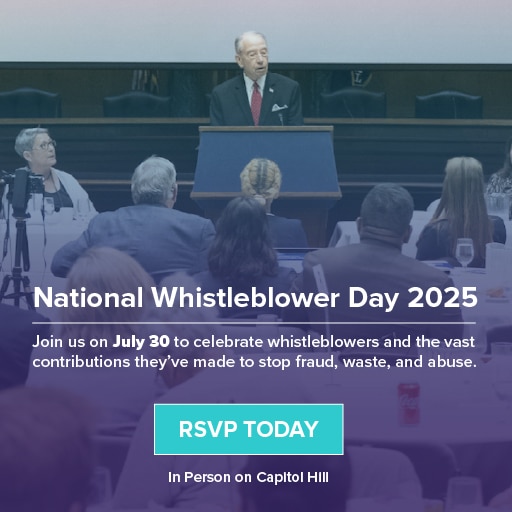On Wednesday, March 16, 2011, the U.S. Court of Appeals for the Tenth Circuit in Denver, Colorado, issued a decision that reaffirms the rights of union members to sue under federal law. The issue most frequently affects the right of union members to bring claims under Title VII for discrimination on the basis of race, gender, religion and national origin. However, it could also affect claims under federal whistleblower laws. The issue had long been settled that when Congress creates individual rights, then workers could not lose those rights merely because they belong to a union that can pursue grievances through arbitration. The Supreme Court settled this issue in Alexander v. Gardner-Denver Co., 415 U.S. 36 (1974). In 2009, however, the Supreme Court unsettled this issue with its decision in 14 Penn Plaza LLC v. Pyett, 129 S. Ct. 1456 (2009).
In Alexander v. Gardner-Denver Co., the Court said that when a union member pursues a grievance to arbitration under a collective bargaining agreement (CBA), that is not a waiver of any rights the member has under federal law. 415 U.S. at 52. If the arbitrator’s power to arbitrate comes only from the CBA, then the arbitrator’s decision has no effect on employee’s statutory rights, even if the CBA bars the same type of discrimination as covered by the statute. 415 U.S. at 53-54. The Supreme Court reached the same conclusion for rights to minimum wages and overtime compensation under the Fair Labor Standards Act (FLSA). Barrentine v. Arkansas-Best Freight Sys., Inc., 450 U.S. 728, 737 (1981). See also, McDonald v. City of West Branch, 466 U.S. 284, 289 (1984) (denying preclusive effect to unsuccessfully arbitrated contractual “just cause” claims in subsequent litigation under 42 U.S.C. § 1983).
In Gilmer v. Interstate/Johnson Lane Corp., 500 U.S. 20, 26 (1991), the Court held that individually negotiated arbitration agreement could include statutory claims and would be enforceable when they do.
In 14 Penn Plaza LLC v. Pyett, 129 S. Ct. 1456 (2009), the Court held that a CBA could waive the employees’ right to go to court for statutory claims whenever the waiver was “clear and unmistakable.” 14 Penn Plaza’s CBA said that, "All such [statutory] claims shall be subject to the grievance and arbitration procedures … as the sole and exclusive remedy for violations." The Supreme Court said this was "clear and unmistakable." This opens the door for companies to push unions to agree to give up their members’ right to go to court.
This week, in Mathews v. Denver Newspaper Agency, LLP, Case No. 09-1233 (10th Cir. 03-16-2011), the Tenth Circuit considered a case where the CBA prohibits violations of the law, but does not contain the sentence used in 14 Penn Plaza. The Tenth Circuit explains:
Although the parties acknowledged that violations of statutory law would also constitute violations of the contract, this does not mean that the CBA covered statutory claims or that the parties believed it to do so. Indeed, the district court’s conclusion ignores the “distinctly separate nature” of contractual and statutory rights, which is “not vitiated merely because both were violated as a result of the same factual occurrence.” Gardner-Denver, 415 U.S. at 50.
The Tenth Circuit went on to hold that Mathews was estopped from pursuing a discriminatory demotion claim because he he asserted that he was no longer able to perform the duties of that position when he applied for disability benefits. The DC Circuit took a different view on this issue in Solomon v. Vilsack, Case No. 09-5319 (DC Cir. 12-21-2010). However, the Tenth Circuit concluded that this estoppel issue did not apply to Mathews’ retaliation claim. The Court sent that claim back to the district court for further proceedings.
Myself, I am not satisfied that courts have properly considered that in labor-management arbitration, the grievance is owned by the union and not by the employee. If the union decides not to spend money on necessary discovery, or decides not to arbitrate at all, what is to happen to a union member who was fired and claims the discharge violated federal law? Future cases may help answer this question. I suggest that the better policy is to recognize that employees own their statutory claims, and unions own their contractual claims. Unions could then pursue development of their members’ rights under the CBA and individual members could still further the public interest by enforcing their individual statutory rights in court.
Pactitioners in this area should also be aware of Hill v. Ricoh Americas. Corp., 603 F.3d 766, 772 (10th Cir. 2010). There, the Tenth Circuit held that an arbitration agreement forced onto an employee as a condition of employment must be enforced, thus barring the employee from going to Court to pursue a claim under the Sarbanes-Oxley Act (SOX). Speaking of SOX, it should be noted that whistleblowers with claims under SOX, USERRA or the Dodd-Frank Act, are no longer affected by forced arbitration agreements. The Dodd-Frank Act and USERRA amendments included specific provisions barring any enforcement of pre-dispute arbitration agreements for whistleblower claims under those laws. Hopefully, Congress will pass the Arbitration Fairness Act (AFA) and bar forced arbitration in all consumer and employment agreements.
Congratulations to my friend Barry Roseman of Denver, Colorado, for successfully representing Mathews in this challenging arena.


